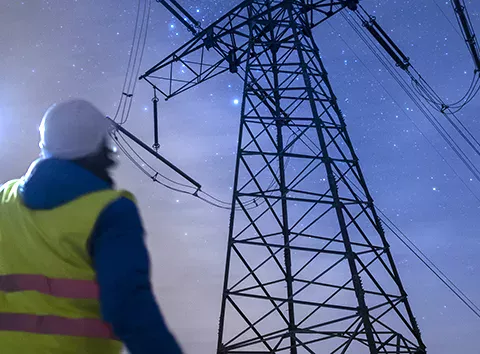A conversation with Odile Renaud Basso and H.E. Dr Rania Al Mashat
On March 8, we commemorate International Women’s Day. It comes at a time when the world around us is changing fast. We see a new violent conflict erupting in Europe, just as the world emerges from the COVID pandemic. At the same time, the threat of climate change looms increasingly large, requiring urgent and decisive actions.
In conflicts and disasters, women and girls often face heightened vulnerability and deeper discrimination. Studies show that there are substantial constraints to the economic opportunities of displaced women as adverse norms result in women having fewer opportunities for economic advancement and bearing the majority of care responsibilities. Furthermore, gender-based violence and abuse often increase as a result of conflict and risks for women well extend beyond border into neighbouring countries.
It has been two years since COVID-19 was declared a global pandemic, causing substantial economic and social impact on women and girls around the world, including those in EBRD Countries of Operations, and rolling back some of the hard-won achievements of past years. Women have been disproportionately affected due to their representation in sectors that were hard hit by lockdown policies, their increased likelihood to be in lower paid, part time, informal and precarious jobs, as well as a significant increase in time spent on care duties. Studies show that women’s jobs are 1.8 times more vulnerable to this crisis than men’s jobs.
Climate change is one of the defining challenges of our time and tackling this requires changes on how we live, work and think. The only way these can be implemented is if everyone takes and active role and if the emerging opportunities related to the green transition are shared equitably. Supporting green economy investments that promote women’s skills and employment opportunities and increasing women’s participation in decision making roles in green business and governance is a key element in achieving an equal, green and sustainable future for all.
To address the new global and regional gender equality challenges, the EBRD has built on its past experience in the important role that greater gender equality plays in enabling countries to achieve a faster recovery and long-term growth. The Bank has launched a new Strategy for the Promotion of Gender Equality (SPGE 2021 – 2025) and the Equality of Opportunity Strategy: Strengthening Human Capital across the EBRD Region (2021 – 2025). These two strategies reflect the Bank’s key strategic priorities for the next five years, highlighting EBRD’s commitment to promoting gender equality and equality of opportunity throughout the EBRD region in partnership with its clients and policy stakeholders. They also capture the importance of strengthened engagement in situations of fragility, economic migration and forced displacement, adding an integrated and intersectional lens on refugees and migrant’s situations when considering investments, policy dialogue and advisory support engagements. The two strategies are also recognised in the Bank’s Strategic and Capital Framework (SCF) 2021-2025, which underlines the importance of equality of opportunity in shaping transition in our Countries of Operations. With an overall ambition to increase the share of annual EBRD’s operations integrating gender equality measures from 18 to 40 percent by the end of 2025, the Bank already made significant progress on this target by achieving a 35 percent share in 2021.
Promoting gender equality is a major objective for the Bank across the SEMED region, including Egypt. Since 2013, EBRD has signed 52 inclusive or gender additional investments in Egypt, totalling to over €2.62 billion in investment amount. Even though in the past decade there has been notable increase in women’s participation in politics and senior roles, large gender gaps persist in Egypt. In 2020, Egypt country ranked 134th out of the 153 countries in the Global Gender Gap Index, and 140th out of 153 countries in women’s economic participation and opportunity. Understanding that empowering women is essential to sustainable development, in particular in the context of climate change, Egypt has launched national strategies and programmes to guide the state’s developmental effort in the area of climate change and advancing women’s economic empowerment.
On this International Women’s Day, EBRD’s Director of Gender and Economic Inclusion Barbara Rambousek, EBRD President Odile Renaud Basso and EBRD Governor, Egypt’s Minister of International Cooperation H.E. Dr Rania al Mashat, will discuss the importance of gender equality and measures to be taken for an inclusive future. The event will explore challenges and opportunities that climate change but also shocks such as the Covid-19 crises, conflict and fragility play in advancing the gender equality agenda. In addition, we will hear from H. E. Dr Rania Al Mashat about Egypt’s programmes and national strategies to advance women’s economic empowerment and the key role the EBRD will continue to play under the recently approved Country Strategy for Egypt.





